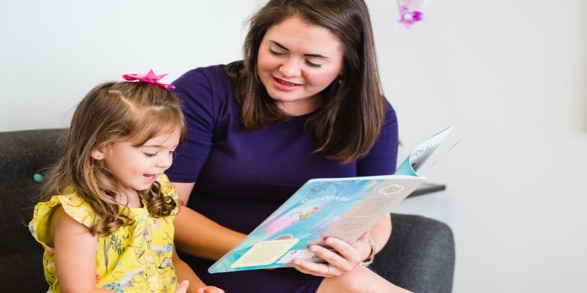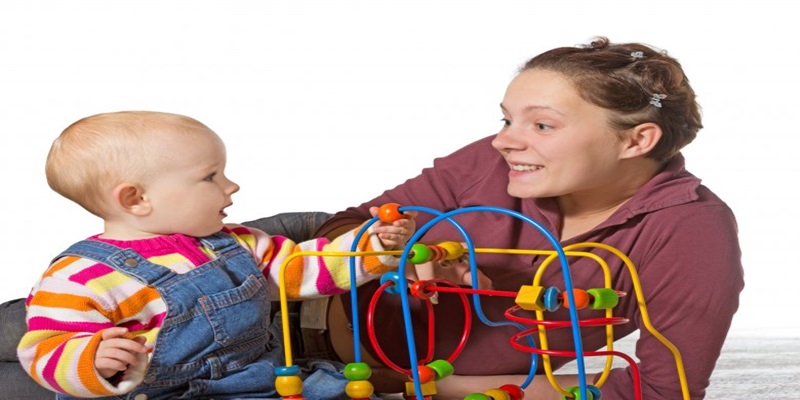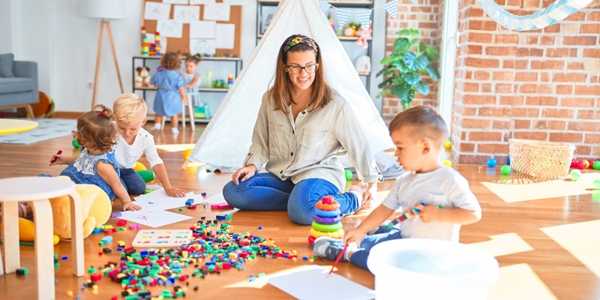Mother & baby
Empowering Toddler Language Growth through Everyday Interactions
As a parent or a caregiver, you are critical to your toddler regarding developing their language abilities. Your everyday interaction with your toddler will make all the difference in their ability to communicate effectively.
As a parent or a caregiver, you are critical to your toddler regarding developing their language abilities. Your everyday interaction with your toddler will make all the difference in their ability to communicate effectively. You can create an environment where language develops naturally by incorporating simple yet powerful strategies into your daily routine. Talk to your toddler about everything you are doing together, reading with them, and many other things.
The Power of Everyday Interactions in Toddler Language Development
Harnessing Daily Routines
Daily activities, from breakfast to bedtime, provide endless opportunities to improve your toddler’s language skills. At mealtime, describe the foods you are fixing and eating, and point out and name different items of clothing and parts of the body while dressing. Such simple interactive moments expose your child to a vast vocabulary within meaningful frames.
Playtime is a goldmine for language. As you build towers with blocks or make tea, tell what you are doing and encourage your toddler to tell you what they are doing. Describe colours, shapes, and textures. Encourage critical thinking and response with open-ended questions and help your child develop receptive and expressive language.
Singing and Rhyming
Songs, nursery rhymes, and fingerplays throughout your day are fun ways to involve your toddler with language. These are good ways for your toddler to learn new vocabulary and new sentence structures because these activities repeat and rhyme. The rhythm and melody make it fun and easy to remember. You do not have to have a great singing voice; your toddler will love whatever voice they get from you!
Nurturing Toddler Vocabulary through Conversation and Narration

Engaging in Daily Dialogues
Daily interactions are full of opportunities to enhance your toddler’s language development. Narrate your activities throughout the day. Discuss meal preparation by describing what ingredients you are using, what you are doing, etc. The more your toddler is exposed, the more they can relate words to events and items.
Storytelling and Reading Aloud
Make storytelling an integral part of your day-to-day activities. Read picture books or make-up tales, exposing toddlers to new vocabulary and sentence structures. Allow your child to take part in pointing to the pictures or predicting what will happen next.
Promoting Language Skills with Engaging Reading Time

Selection of Books
It is important to select books based on a toddler’s age. Smaller toddlers use board books with colourful pictures and simple text. Introduce picture books for the bigger ones with a small story and rhymes. The toddlers will keep themselves busy with this kind of material, which introduces them to the exploration of language.
Interactive Reading
Storytime should be turned into a fun two-way conversation. Questions should always be related to the characters or something they can see in the picture. Ask your toddler to point to any familiar object or guess what happens next. This kind of interactive session allows understanding and comprehension of the subject matter, as well as active vocabulary.
Establish a Reading Routine
Make reading together a routine read at the same time every day, such as before bedtime or after dinner. This becomes a comforting ritual for your toddler and an association with reading. Reading at regular times exposes your child to patterns in the way people communicate and sets up a child for life-long reading.
Bringing Stories to Life
Use inflexion in your voice and make eye contact. Make faces and hand gestures to bring the characters and scenes to life. That is just fun, captures your toddler’s imagination, and helps your child learn to connect words to emotions and actions. The child also understands that words can be expressive and will imitate your example, experimenting with different tones and emphasis.
Fostering Communicative Expression through Playful Activities

Story Time and Play Acting
Initiate fantasy play situations with your toddler. Act out familiar activities or create fantasy adventures. Please encourage your child to describe her actions, feelings, and fantasy world. Be imaginary chefs in a busy restaurant or explorers in a magical forest.
Interactive Games and Puzzles
Introduce games that promote verbal participation. Simple board games, memory cards, or picture-matching games will have your child naming the object, describing the colour, or even offering their opinion. During play, utilize open-ended questions to get longer, more complicated responses.
Music and Movement
Insert sing-alongs, action songs, nursery rhymes, and plenty of movement into your daily schedule. The repetition in songs, rhymes, and rhythm teaches the toddler to relate words to actions and rhythm. A multisensory method of reinforcing language is developed through fun and playful ways. Make wild dance steps to old favourites or new verses for old songs.
Art and Creativity
Chat with your toddler about their drawing as they create the masterpiece. Offer multiple types of materials, such as finger paints or play dough, and question their colour and shape decisions. This builds vocabulary and teaches them to put thoughts and feelings into words as they describe their artwork.
Empowering Toddlers to Achieve Their Full Language Potential
Building a Language-Rich Environment
Surround the toddler with words and conversation. Let them hear much talking and talking about things and activities going on around them. Create a language-rich environment through narration, reading books, and holding good conversations. Describe all items, actions, and feelings to help toddlers develop vocabulary.
Encourage Two-Way Communication
Let the toddler understand that communication works both ways. Listen attentively while listening to them, and respond with excitement and interest. Ask open-ended questions that allow longer answers, thus encouraging talk to express one’s thoughts and feelings. Give them a chance to construct responses to questions while being patient; make them feel that the information they provide is essential.
Make Every Day a Teachable Moment
Bring ordinary activities into the chance to learn about the language. When eating, comment on the type of food, colour, and taste. While dressing, name clothing and body parts. These everyday interchanges contextualize new words and ideas; hence, they are remembered.
Language development should also be embedded in fun activities.
Create imaginary situations and scenarios that expose toddlers to new words and let them practice conversational exchanges. Sing songs and recite nursery rhymes, and then there are word games that can be enjoyed while learning language. A more playful approach is usually the most effective in toddlers’ language development.
Nurturing Your Toddler’s Language Development
As you begin embarking on this exciting journey of your toddler’s language development, remember that every interaction may be an opportunity for growth. You will build on their communication foundation by embedding these organic strategies into your daily routine. It is essential to be consistent, patient, and enthusiastic when modelling language, having conversations, and creating a rich linguistic environment. Allow every small step into reaching those milestones to be an event worth celebrating and stand firm in trusting your child to develop at his own pace.
How do you like this article?





 Latest Posts
Latest Posts





